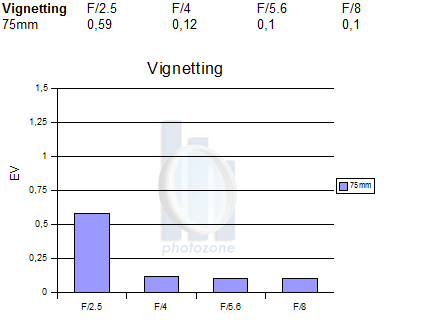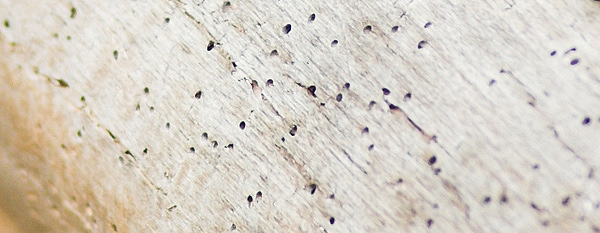|
Voigtlander Color Heliar 75mm f/2.5 SL (C/Y to Canon) Review / Test Report - Analysis |
|
Lens Reviews -
Canon EOS (APS-C)
|
|
Page 2 of 3
Distortion
The Voigtlander produced a slight degree (~0.3%) of pincushion distortion which is generally
not field-relevant.

The chart above has a real-world size of about 120x80cm.
Vignetting
The Color Heliar is a full format lens and as such it enjoys the usual sweet
spot advantage when used on APS-C DSLRs. Within this scope the lens shows only a moderate
degree of vignetting at f/2.5 and from f/4 onwards it's a non-issue.

MTF (resolution)
The Voigtlander produced pretty impressive resolution figures for a large aperture
lens. At wide-open aperture the center performance is already excellent and the
borders follow on very good levels. The quality is excellent from f/4 all the way up
to f/11. The peak performance is reached at f/5.6.
Please note that the MTF results are not directly comparable across the different systems!
Below is a simplified summary of the formal findings. The chart shows line widths per picture height (LW/PH) which can be taken as a measure for sharpness.
If you want to know more about the MTF50 figures you may check out the corresponding Imatest Explanations
Chromatic Aberrations (CAs)
Typical for Voigtlander lenses lateral CAs (color shadows at strong contrast transitions)
are very low and not field-relevant.

Purple Fringing
The 75mm f/2.5 can show a fairly pronounced degree of purple fringing (a blooming effect
at extreme contrast transitions) when used at wide-open aperture. Here's a 100% sample
crop showing some water reflections:

Longitudinal Chromatic Aberrations (LoCA)
LoCAs (non-coinciding focal planes of the various colors) are a further aspect. Similar
to several other (non-APO) large aperture lenses (like the Canon EF 85mm f/1.2L or
Nikkor AF 85mm f/1.4) the Voigtlander also suffers from this defect. If you look hard
you can see that the "holes" in the sample image below are a bit greenish to the left
(behind the focus plane) and slightly reddish to the right side (in front of the focus
plane). However, the problem is comparatively minor also thanks to the relatively
moderate max. aperture.

|